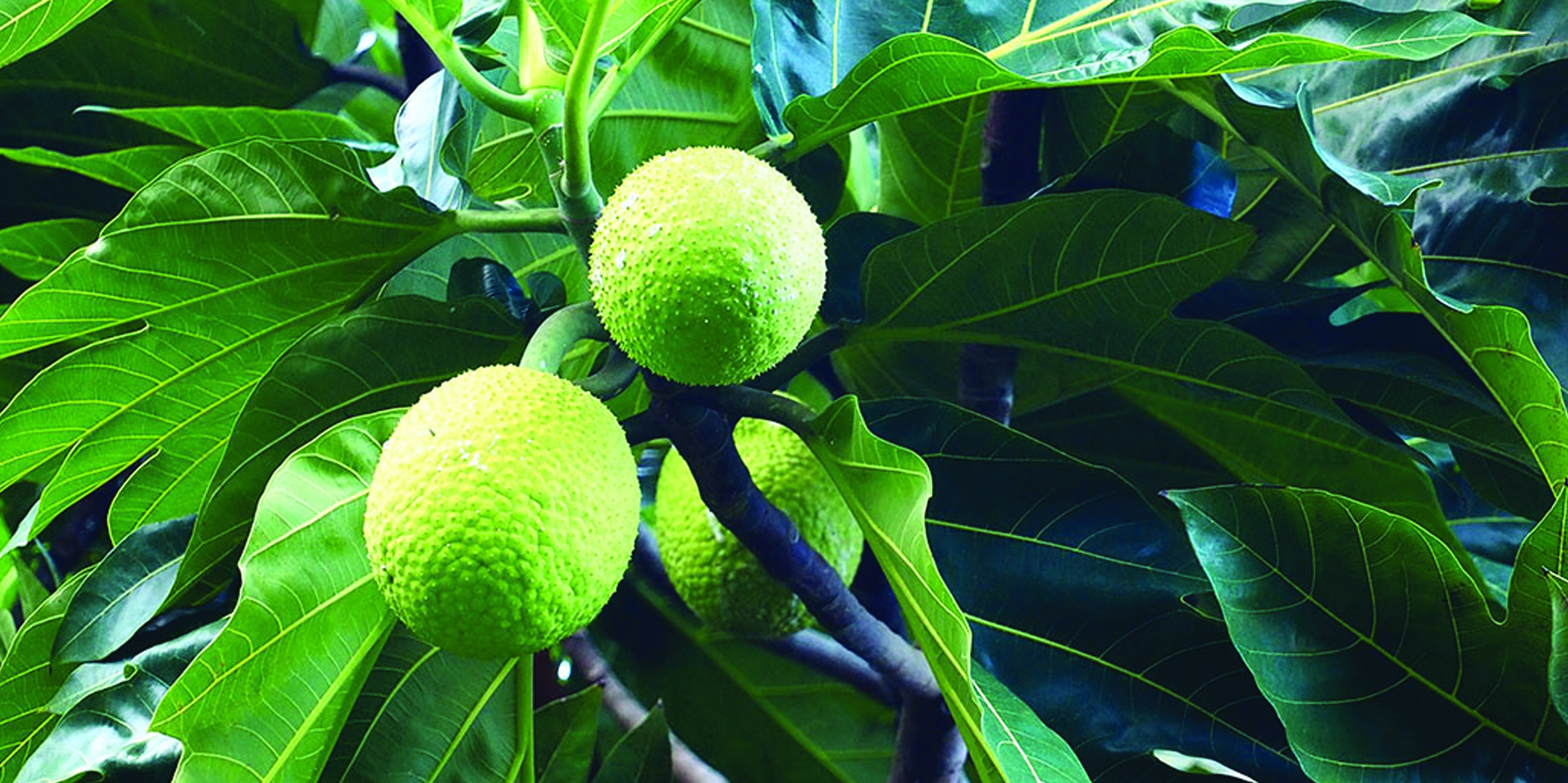b l o g
j u l y 2 0 2 0
 Breadfruit is adaptable to local climates in the Pacific and has potential to contribute to food and nutritional security, income generation and the preservation of traditional food systems IMAGE: Ke Ola Magazine
Breadfruit is adaptable to local climates in the Pacific and has potential to contribute to food and nutritional security, income generation and the preservation of traditional food systems IMAGE: Ke Ola Magazine
By Papali‘i Dr. Failautusi Avegalio Jr.
On March 18, 2020, President Donald Trump invoked the Defense Production Act (DPA) in response to the COVID-19 outbreak putting the administration on a war time status alert.
With the underpinning of the DPA to address the corona virus global pandemic, food and water security will be the most challenging needs following medical health treatment and mitigation priorities.
In particular, the high rate of COVID-19 casualties among our elders linked to underlying health, i.e., diabetes, heart disease, renal disease, all diet related.
With the inevitable degeneration of manufacturing, supply chains, distribution centers, international and local transportation systems taxed by the pressures of the corona pandemic, the on-the-ground measure for food security in the Nation’s impacted areas will be how well stocked or empty the shelves for food & accessory food items will be; and for how long.
For scale and context, the field of urban planning has a term for populated areas called conurbations.
Conurbations are created by continuously expanding cities, suburbs and towns that merge into a mass sprawl with little or no rural land in between for hundreds of square miles with populations in the millions.
There are 14 such sprawling conurbations spanning the nation from Puerto Rico’s Area Metropolitana in the Caribbean, the New York Tri-state area in the Northeast, Dallas—Fort Worth in the Midwest and the San Francisco Bay Area and Greater Los Angeles Area along the west coast.
Eighty per cent of the nation’s population (331,002,651) live in conurbations.
Exacerbated by unprecedented job loss and with employment opportunities at a standstill, feeding these populations in a sustainable manner for at least 8 months (projected by government leaders) will be a formidable national challenge.
The US Territories can avoid being part of that scenario and contribute at a territorial scale to help our nation in its time of need.
This is possible by minimizing the need to divert resources from COVID-19 impacted populations on the US mainland, that unlike American Samoa and most of the US Territories, are completely dependent on shelf food transported daily to survive.
Village, Family Plantations and Commercial Farmers First Line of Defense for Food Security
Food, water and shelter are the basics of food security and waiting for external resources after the fact, rather than acting now with local preparations, is not only insufficient but irresponsible.
Our older generation, local retirees and veterans, many whom are local farmers and traditional leaders, together with our local commercial agricultural businesses are the first line of defense for food security.
The overflow impact of overwhelmed national conditions on the US Territories is eminent. This potential condition can be mitigated by local resourcefulness and self- reliance.
The experience of elders who, as adolescents lived the traditional manner, together with village leaders must work collaboratively with government towards strengthening village and community resilience.
Our elders in particular can lead, teach, restore or strengthen cultural practices for the younger generation modeling how to live without modern amenities or imported food. Planting taro, propagating an ulu root cutting or planting niu vai is time better spent than hours sitting in long lines in ones car, or standing in long lines hoping there will still be food on the shelf to purchase.
Unlike an ulu or a niu, once you buy something from the shelf, or get water and packaged food from a relief pallet, it doesn’t grow back.
Poor diets consisting of imported processed foods and drinks that are high glycemic and high gluten contribute to the underlying health issues that increase the vulnerability to diseases and are often fatal when COVID-19 is contracted.
Nutritionists and food scientists have reaffirmed the significantly healthier ingredients of breadfruit and associated traditional foods (understood by our ancestors) to mitigate and stop the concurrent scourge of diabetes, heart disease, renal disease and obesity.
Engaging the aumaga and unemployed of the villages to establish food plantations for basic clan food security is imperative.
There is a difference between planting for food security vs planting for profit. They are not the same thing. Planting for food security and the welfare of family and village can generate profits. However, planting for profit is no guarantee of food security and will exacerbate relief to those in need.
Decisive actions to support the localization and restoration of traditional and modern food production at the aiga and village levels must be aggressively led.
With the scale and rapid spread of the coronavirus and adverse impact on the basic needs of the national population, ships that fill the food shelves and provide fuel for the remote US Island Territories will arrive farther and farther in between. Worst case scenario — it stops all together.
